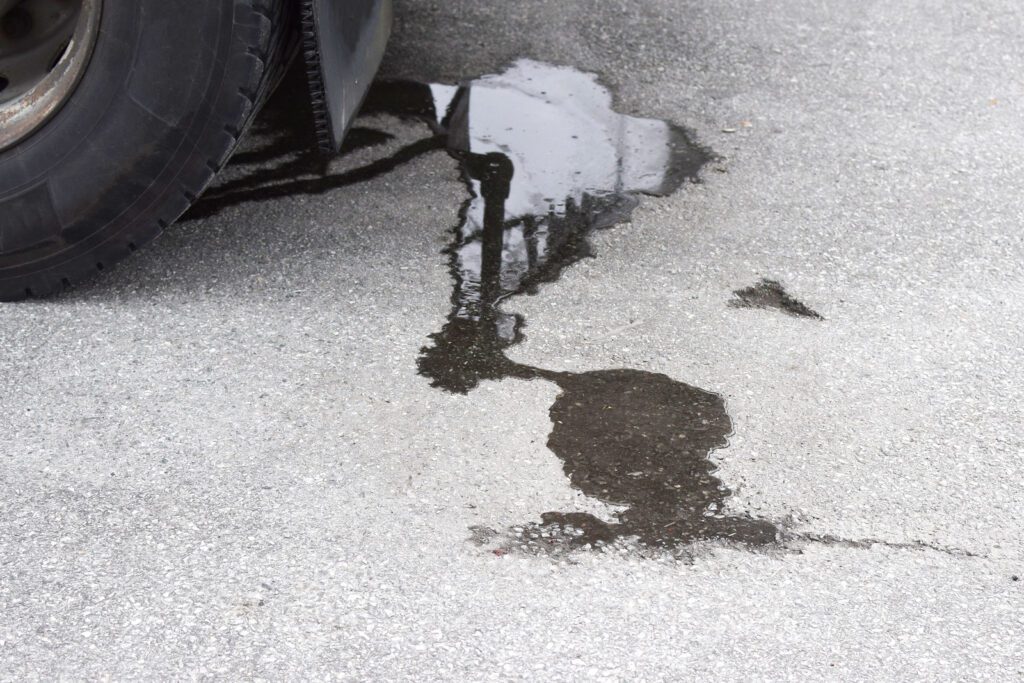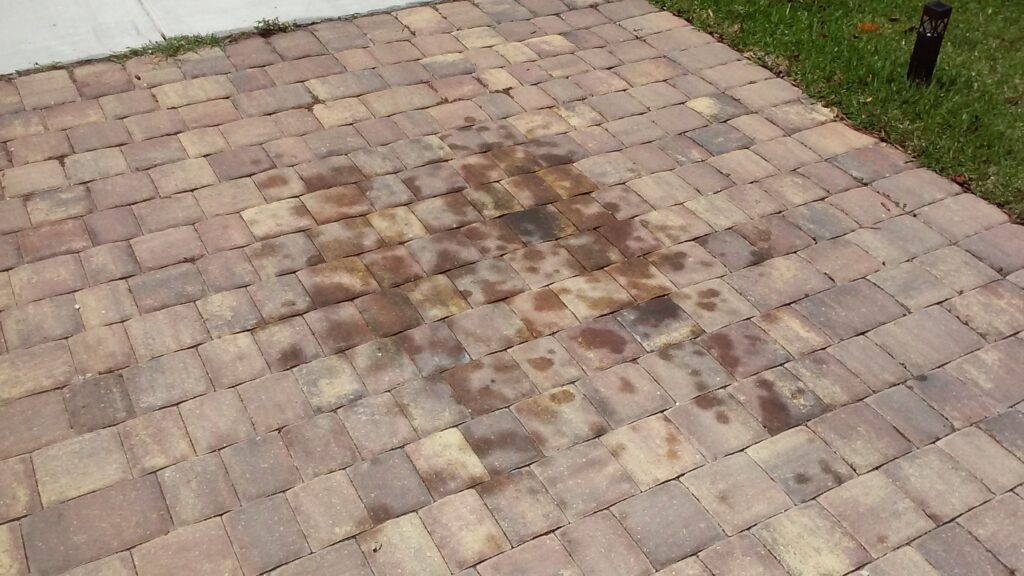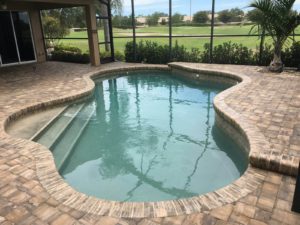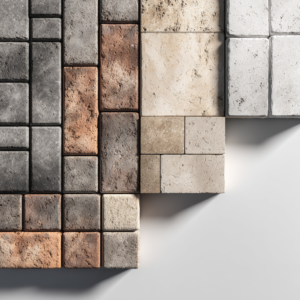Cleaning paver patios and driveways are common practices to ensure they look good for a long time. Homeowners who own paver driveways often find themselves dealing with difficult stain and spills. One of the hardest ones to deal with are the oil spills. So how to degrease a driveway?
The maintenance of pavers is not a small matter. They are a costly investment and need to be properly taken care of to make sure they return the investment and add value to your home instead of giving you headaches.
The most common way a paver installation can give you headaches and make you lose money is by developing a permanent stain. Oil is a nightmare in that aspect, as it can easily stain your pavers if not quickly dealt with.
But what to do if that ship has already sailed and you currently have an oil stain to deal with? What to do then? Let’s present you with a simple guide on how to approach the removal of that stain with a few simple tricks.

Jump to:
Degrease a Driveway: Choosing the Right Products
Cleaning oil stains start by choosing the right products according to your situation. Most common household products can already do the trick in most mild cases, while specialized cleaning products must be used in the most severe cases.
It all depends on the state of your oil stain. For the purposes of this guide, let’s divide oils stains into three categories: fresh stains, small stains and large stains. Let’s talk about each method separately.
Fresh Stains
Fresh stains are maybe the best moment to clean oils spills, as if you are quick enough you can avoid further damage to the pavers.
To work on fresh stains, you will use the poultice method.
An important disclaimer: do not use the poultice method if your pavers are sealed! We will talk about sealed driveways on a later section.
The poultice method consists in mixing baking soda with acetone or thinner until you have a thick paste. Once you reach the paste consistency, apply it to the stain, about ¼ of an inch thick. Cover the stain with plastic and leave it working for about 24 hours.
After the 24 hours have passed, remove the paste and rinse the area. For smaller stains, you can simply pour the baking soda on top of it, let it soak the oil for a while and then proceed to clean the area witha comercial concrete cleaner.
Small Stains
For small stains, you’re going to need detergent (liquid or powder), hot water and a stiff brush.
Simply pour the detergent on the area until the entire stain is covered. Leave the detergent rest for about 20 minutes if it’s liquid.
Add the hot water to the stain and scrub it using the stiff brush. You might have to repeat the process several times, and even in the day after, as oil can surface on the paver after a while.
You can use the poultice method we previously mentioned to get rid of particularly stubborn stains.
Large Stains
Large stains are too big to effectively use the poultice method. For those, you’re going to need a specialized degreaser product or microbial cleaner.
These products are a better alternative to the chemical products. They are safe to use around plants and with pets in the house. Degreasers and microbial cleaners are very strong and act very fast, so you have to pay full attention when working with them.
With one in hands, all you have to do is to follow the instructions on the label. The instructions are really simple and will usually recommend you to let the product act for about 5 minutes before scrubbing it with a brush.
You can repeat the process as many times as you deem necessary until you remove the stain, rinsing the area with water afterwards. For larger but not so strong stains, you can dilute the product in five parts water.
How to Degrease a Sealed Driveway?
There is an important, and often overlooked, aspect regarding the maintenance of driveways and patios pavers: pavers need to be sealed.
This fact is not very well known, except for professionals in the field and homeowners who have already worked with pavers. Most pavers are porous and need to be sealed to avoid spills to seeping into their structure.
If your pavers are sealed, they will be more protected against oil. In that case, we don’t recommend the poultice method to clean them. The poultice method can damage the sealer.
In that case, a chemical free degreaser is your best friend. You can still use the baking soda to soak up as much oil as you can from the stain, but do not add the acetone or thinner.

Professional Help to Degrease Driveways
Oil stains are an old nemesis of paver patios and driveways. They are one of the hardest stains to deal with and can really damage the pavers and the sealer.
Even worse, most acidic cleaning methods also are not very helpful. If you end up using them, you will in the end have just traded one stain for another.
Really, the best product you can use to degrease a driveway are non-chemical degreases. The more natural the better, preferably even biodegradable ones.
For such a delicate ordeal, we highly recommend you reach professionals to help you. They can help you with both the cleaning, recommending you which products to use and the sealing process of your driveway.
We here at JS Brick offer that amongst many other services in the installation and maintenance of pavers. For 20 years, we have been providing top quality work around the Sarasota and Manatee Counties, in FL.
If you’re in the area, why not give us a call at +1 941 586 9140 or email us at [email protected]. We would be happy to hear from you and help in any way we can.



